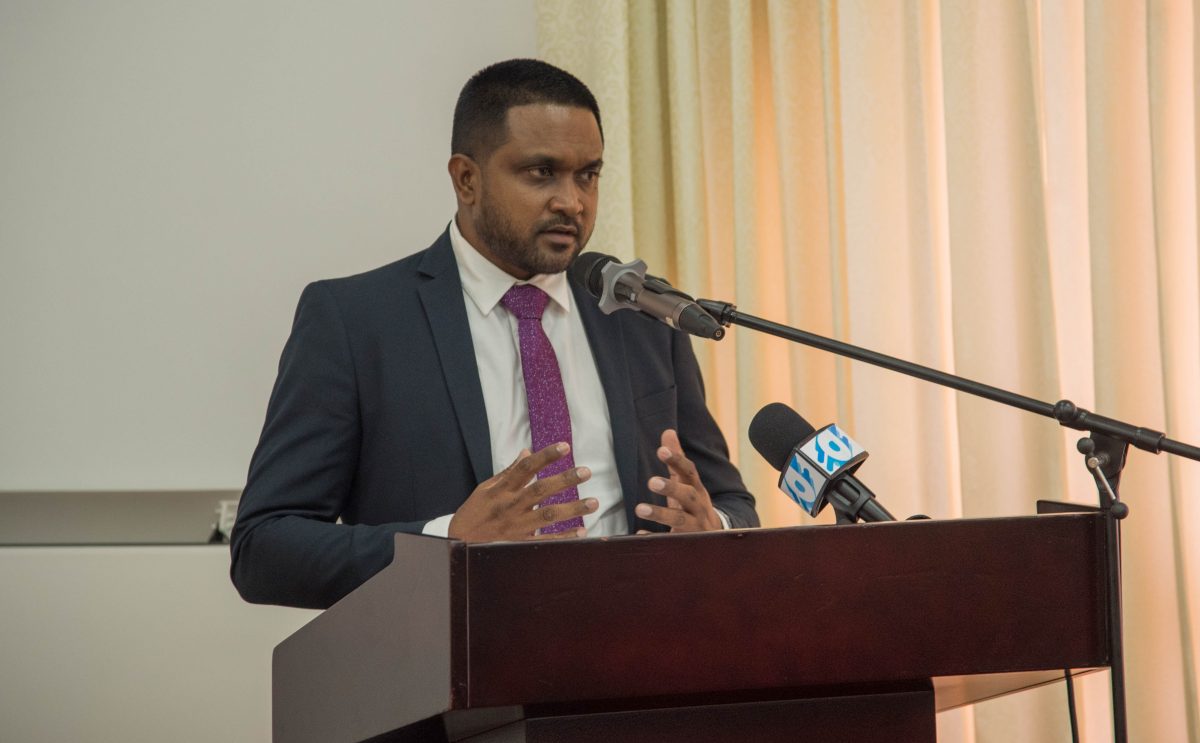Holding local government elections and an increase in subventions being provided to municipalities and Neighbourhood Democratic Councils (NDCs) have been announced as being among the top priorities of the Ministry of Local Government under the new government.
Minister of Local Government and Regional Development Nigel Dharamlall yesterday told a news conference that although a date has not yet been set for the next local government elections, it is a mandate of the new government for them to continue.
“When we came into office many years ago, we were the first government to have a local government elections in place in 1994 and it is also the mandate of President Irfaan Ali that local government elections will continue,” Dharamlall said.
“Local government and regional development play a critical role in enhancing people’s lives… The People’s Progressive Party/Civic manifesto speaks heavily to local government and local governance where citizens will have to take ownership of leadership within their communities and moving forward, we will enhance a skillset, we will enhance with support provided to residents within our local bodies and within our regions so they can be core leaders at the local level,” he added.
The last local government elections were held in November, 2018 under the APNU+AFC administration, which resumed the elections in 2016 after an almost two-decade long lull under former PPP/C governments. Local Government elections are constitutionally due every three years.
Addressing the ministry’s plans, Dharamlall said the new government plans to “very quickly” pursue an increase in the subvention provided annually to the 70 NDCs and 10 municipalities. He said this will be done since these departments require substantial financial support.
Dharamlall noted that the Ministry will be lending support to the local government bodies in handling the resources and to tackle infrastructural needs within communities across the country.
“I think one of the things that we have noticed across this country is the deterioration of our infrastructure, the dilapidated state of the infrastructure of our country and we would like our local bodies to begin as part of their enhancing the lives of our citizens to begin to take control and management of our infrastructure,” Dharamlall said.
He noted that the ministry will also “vigorously” pursue strengthening the planning and budgeting of systems of local organs.
“…Local organs comprise of individuals like you and I who are elected — sometimes even without them wanting to do so but they do it because the residents would like them to do so — and we have to provide support in those areas so that they can become transparent and they can become more accountable to the citizens they serve,” he stated.
Another weakness of the local government system, Dharamlall said, is the lack of capacity in providing services to villages and communities. As a result, he said the ministry intends to vigorously strengthen those local organs to ensure that they become more efficient and effective in their relationships with citizens.
Dharamlall stated that collaborative programmes will also be implemented with the other ministries, such as Home Affairs, Health, Public Works and Education, which will be beneficial to the local government bodies.
“…We will have to be working very closely with the Ministry of Public Works to ensure electrification in our communities. We are going to have work very closely with the Ministry of Home Affairs to ensure that there is greater security and safety in our villages. We are going to have to work very closely with the Ministry of Agriculture to ensure that our small farmers, especially the household farmers, even those who are employed in the larger sectors of the economy, that their conditon are also uplifted and enhanced,” Dharamlall explained.
One of the main aims of the ministry, Dharamlall said, is to bridge the gap between the government and citizens. He said the government would be working towards fulfilling its promise of providing 50,000 jobs. “…We are going to have thousands of persons employed in the rural areas of Guyana, in the hinterland of Guyana, in the municipalities of Guyana. It is part of our promise to provide 50,000 jobs and it is every intention of the Local Government and Regional Development [Ministry] to work with the other ministries and to work on the vision,” Dharamlall noted.
A “critical” area which will also be addressed is the Solid Waste Programme of the country, Dharamlall said.






